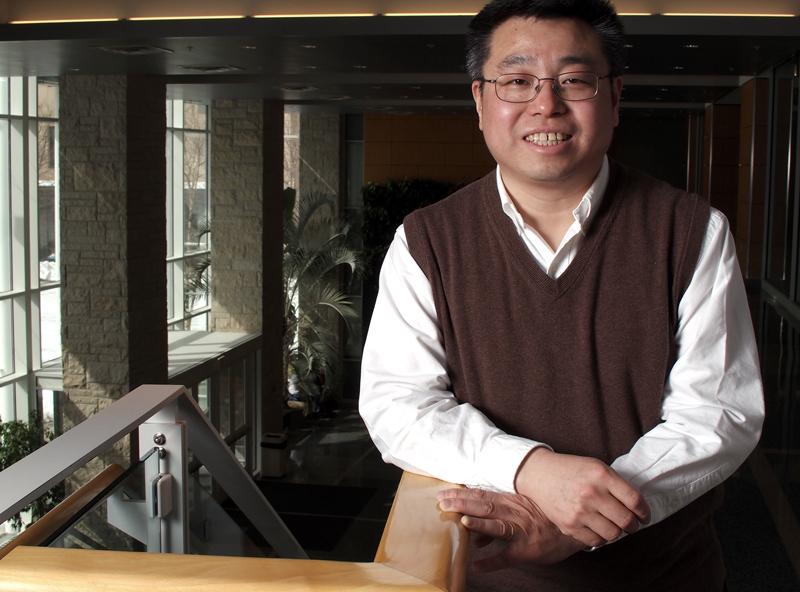Corn is king and soy is queen.
It’s the queen of the economy, of agriculture and of the Molecular Genetics and Soybean Genomics Laboratory, senior research scientist Dr. Tri Vuong said.
The laboratory studies plant genomes to breed an improved soybean more resilient to drought and disease. MU’s laboratory also houses the National Center for Soybean Biotechnology. MU was chosen by the U.S. government to host the center because of its interdisciplinary research on soybean genetics, genomic and related sciences, according to the NCSB website.
Because of NCSB’s importance, MU receives funding from the Missouri Soybean Merchandising Council and the United Soybean Board, Vuong said.
“It’s very important for the economy,” Vuong said. “Americans don’t consume a lot of soy products, so it’s produced mainly for animal feed. Soybean production in the U.S. is the highest in the world. Corn might be king, but soy is definitely queen.”
Vuong said the amount of funding the laboratory receives to study soybeans provides further incentive.
“Funding and support are necessary for following your dreams,” Vuong said. “You can’t just go do — you need funding.”
Many different scientists, such as molecular biologists and plant pathologists, work in the lab. Vuong said there are countless projects going on at any given time depending on the expertise and interests of the scientists in that area.
Vuong is a geneticist by training. The projects he oversees are especially focused on isolating the gene or genes that make a soybean resistant to the cyst nematode, a roundworm that infects soybeans in the Midwest. Other projects conducted in the lab focus on drought resistance and seed composition traits.
“The soybean cyst nematode is the most important disease in Missouri soybean production,” Vuong said. “Farmers want resistant soybeans.”
Vuong and his team are working to isolate the gene or genes that are resistant to the nematode. Once the team finds the specific gene or genes, breeders will be able to cross the desirable genetic pattern into a new round of crops.
Multiple genes are needed to create a truly resistant seed, Vuong said.
“In the field, diseases, fungi and bacteria lead a very complex life,” Vuong said. “Much more complex than what we teach on a blackboard. Plants need more than one (resistant) gene to combat problems.”
Vuong said the ultimate development would be a package with many resistant genes to defend against a variety of pests. This package would be given to breeders, who would then pass the information on to farmers.
“The funding helps the scientists, who help the breeders, who help the farmers,” Vuong said. “There’s always work to be done.”
Ashley Warfield is a research specialist on the technical staff of the laboratory.
“I was in the College of Agriculture, and soy is inescapable,” Warfield said. “It’s a large part of not only the Missouri economy, but the world economy as well. Plus, there are the great health benefits (to consuming soy products).”
Warfield said there is no way to avoid soy research in the College of Agriculture.
“I’m the only one with a project on human health right now,” Warfield said. “Everyone else in the lab is working towards increasing yield and its impact on the economy.”
Warfield said the variety of soybean research ranges from plant breeding to human health.
“If you’re looking for a place to do soy research, Mizzou is the place,” Warfield said.








